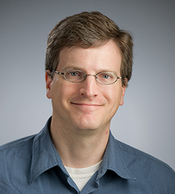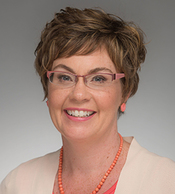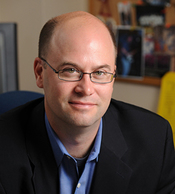Wednesday (Sept. 23) during his welcoming ceremony at the White House, Pope Francis made reference to one of the central themes of his papacy: that the modern global economy is enriching the few at the expense of the many.
“I would like all men and women of goodwill in this great nation to support the efforts of the international community to protect the vulnerable in our world and to stimulate integral and inclusive models of development,” Francis said.
 Joseph Kaboski
Joseph Kaboski
Joseph Kaboski, professor of economics at the University of Notre Dame and the president of the Catholic Research Economists Discussion Organization (CREDO), does not anticipate that the pope will be giving economic or policy advice during his U.S. visit. Rather, "he will be making a moral argument about what are the issues are that we ought to be thinking about. He is playing the role of a spiritual leader.
“I think that deep down, one of the things that the pope is against is greed and thinking of life just in terms of economics and in terms of living to consume, rather than consuming to live. And deep down people have a sense that life is more meaningful. Man doesn’t live on bread alone."
 Kathleen Sprows Cummings
Kathleen Sprows Cummings
Ahead of Wednesday’s Mass of Canonization of Junipero Serra, canonization expert/author Kathleen Sprows Cummings, director of Notre Dame’s Cushwa Center for the Study of American Catholicism, says:
“Canonization always links local cultures to the universal Catholic Church. To the faithful who share a common geography with the canonized person, the new saint becomes a special heavenly friend who can help them grow closer to God and who can inspire them toward lives of greater holiness. Junipero Serra traded a comfortable existence as a European university professor for a life dedicated to service and evangelization among the indigenous peoples of North America. In affirming that Serra fulfilled a saintly vocation in land that is part of the present-day United States, Pope Francis is challenging today’s U.S. Catholics to think about how they might spread the joy of the gospel in American culture, particularly among those who have neither heard nor understood it. The fact that this is the first canonization on American soil adds to the resonance it will have for Catholics in the United States, particularly among the ever-growing Spanish-speaking population. Serra was not sinless; no saints are. In this instance, however, his blind spots may be as much a gift to the faithful as is his saintly example. Pope Francis has acknowledged and apologized for church’s complicity in the atrocities committed against native peoples as a result of European colonization. Serra’s canonization provides an opportunity to reflect on those sins, and resolve not to repeat them.”
Cummings is the author of the forthcoming book “Citizen Saints: Catholics and Canonization in American Culture.”
 Richard Garnett
Richard Garnett
Following Francis’ talk at the White House and as he prepares to address Congress Thursday (Sept. 24), it is not surprising, though it is disappointing, that many journalists and politicians are viewing Pope Francis’ visit to the United States entirely through the lens of American partisan politics, according to politics and religion expert Richard W. Garnett, law professor.
Garnett says, “Many appear to be more interested in predicting which political ‘side’ will gain an advantage from the visit than in hearing what the pope has to say. Any American politician, of either party — any American, for that matter — who feels completely affirmed and vindicated by Pope Francis and his presentation of the Gospel is not paying attention. Pope Francis is not interested in providing candidates and officials with a scorecard or a checklist that they can use to compete with each other or to spin their own records as ‘Francis-approved.’ A politician, of either party, who sees Pope Francis’ visit as a photo op to exploit at election time, or who expects a pat on the back for his policy views, is doing it wrong. His visit and message are both prophetic and pastoral. His challenge, to all of us, is to allow ourselves to be challenged by Christianity to discomfort, and to conversion. Many Republicans are uncomfortable in advance — as they should be — by the likelihood that the pope will challenge the world’s richest nation to put aside anti-immigrant rhetoric and to embrace those victimized by violence, oppression and poverty abroad. Many Democrats, on the other hand, appear to be looking forward to something like a papal pat on the back, but they will almost certainly be disappointed. The point is not simply that the pope will almost certainly criticize their embrace of abortion rights and urge greater protections for religious freedom. It is, instead, that the pope will be reminding everyone, regardless of party, that we all too often fail to attend, with mercy, to those ‘on the margins,’ which is where he is urging everyone to go.”
Garnett specializes in religious freedom, religion in the public square and church-state relations.
Contact:
Joe Kaboski, 574-631-9906, jkaboski@nd.edu
Kathleen Sprows Cummings, 574-631-8749, cummings.23@nd.edu, @ksprowscummings
Richard Garnett, 574-631-6981, rgarnett@nd.edu, @RickGarnett